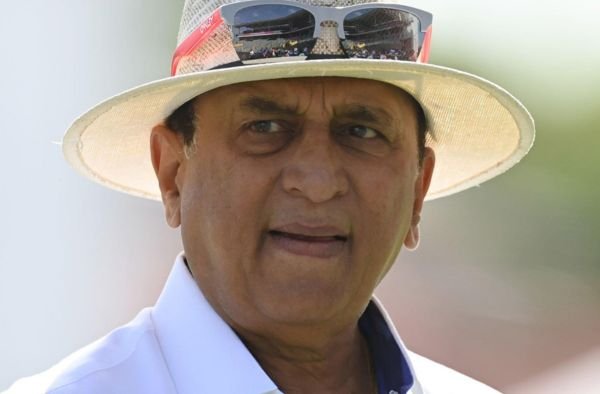Legendary Pakistani cricketer Javed Miandad has expressed disbelief and disappointment over recent comments made by Indian cricket icon Sunil Gavaskar regarding Pakistan’s participation in the upcoming Asia Cup.

Gavaskar, in a media interview, suggested that due to the current political tensions between India and Pakistan, it is highly unlikely that Pakistan will be able to take part in the tournament, which is being co-hosted by India and Sri Lanka. Gavaskar pointed out that the Board of Control for Cricket in India (BCCI) typically follows the Indian government’s directives, implying that political circumstances could prevent Pakistan’s inclusion.
Miandad’s Surprised Reaction
Miandad, recalling his long-standing camaraderie with Gavaskar, said, “I can’t believe Sunny bhai said this. He’s a respectful, down-to-earth person who always stayed away from politics.” He emphasized his surprise that someone of Gavaskar’s stature would make such a politically charged statement, given his reputation for keeping sports and politics separate.
Miandad further added, “Cricket has always been a bridge between our countries, even during difficult times. Legends like Gavaskar have always promoted sportsmanship and unity. It’s disappointing to see such statements at a time when cricket can help ease tensions.”
Voices from the Cricket Fraternity
Other former Pakistani cricketers echoed Miandad’s sentiments. Iqbal Qasim stated he initially thought the statement was misattributed, highlighting Gavaskar’s responsible image and urging that politics should not be mixed with sports.
Basit Ali was more direct, calling the remarks “stupid” and insisting that cricket should remain above political hostilities, especially before any investigation into recent incidents is concluded. Former leg-spinner Mushtaq Ahmed also urged legendary players to act with restraint and responsibility, warning against politicizing the sport.
Some Indian cricket fans and experts have also weighed in, suggesting that while Gavaskar’s comments may reflect the current political reality, cricket should ideally remain a platform for dialogue and peace. Many believe that the Asia Cup, as a pan-Asian event, should not become collateral damage in political disputes.
Political Tensions and Cricket’s Future
These reactions come in the wake of a deadly attack in Kashmir, which has sharply escalated tensions between the two countries and cast uncertainty over not only the Asia Cup but also the broader future of India-Pakistan cricketing ties. The Indian government’s strong response-including suspending the Indus Water Treaty and hinting at further retaliatory measures-has put additional strain on bilateral relations.
The Asian Cricket Council (ACC) now faces the challenge of ensuring the tournament’s integrity and inclusivity. Organizers are under pressure to find a diplomatic solution that allows all member nations to participate, upholding the spirit of the game.
The Role of Cricket in Diplomacy
Cricket has historically played a unique role in India-Pakistan relations, often serving as a rare channel for people-to-people contact and soft diplomacy. Iconic matches between the two nations have drawn massive viewership and fostered moments of goodwill, even during periods of political strain.
Miandad, who himself was part of several high-voltage India-Pakistan encounters, reminded everyone of cricket’s power to bring people together. “We must not let politics destroy the spirit of the game. The world looks to us for examples of sportsmanship, not division,” he said.
FAQs
1. What did Sunil Gavaskar say about the Asia Cup?
Gavaskar suggested that Pakistan is unlikely to participate in the Asia Cup due to current political tensions, as the BCCI would follow the Indian government’s directives.
2. Why is Javed Miandad upset with Gavaskar’s comments?
Miandad is surprised that Gavaskar, known for keeping sports and politics separate, would make such a statement, and he believes cricket should be used to promote unity, not division.
3. How have other Pakistani cricketers reacted?
Former players like Iqbal Qasim, Basit Ali, and Mushtaq Ahmed have echoed Miandad’s views, urging that cricket remain above politics and calling for restraint from legendary figures.
4. What impact could this controversy have on the Asia Cup?
The controversy adds uncertainty to the Asia Cup’s future, as political tensions may affect participation and the tournament’s overall integrity.
5. Has cricket helped India-Pakistan relations in the past?
Yes, cricket has often served as a bridge between the two countries, offering moments of goodwill and people-to-people contact even during tense times.
Conclusion
Javed Miandad’s reaction to Sunil Gavaskar’s Asia Cup stance highlights the deep emotional and cultural significance of cricket in South Asia. As political tensions threaten to overshadow the sport, voices from both sides of the border are calling for cricket to remain a force for unity and peace.
The coming weeks will be crucial for the ACC and cricket fans everywhere, as they hope for a resolution that puts the spirit of the game above politics.